
Contact Us
Get in touch with us using the form or details below. We look forward to hearing from you!
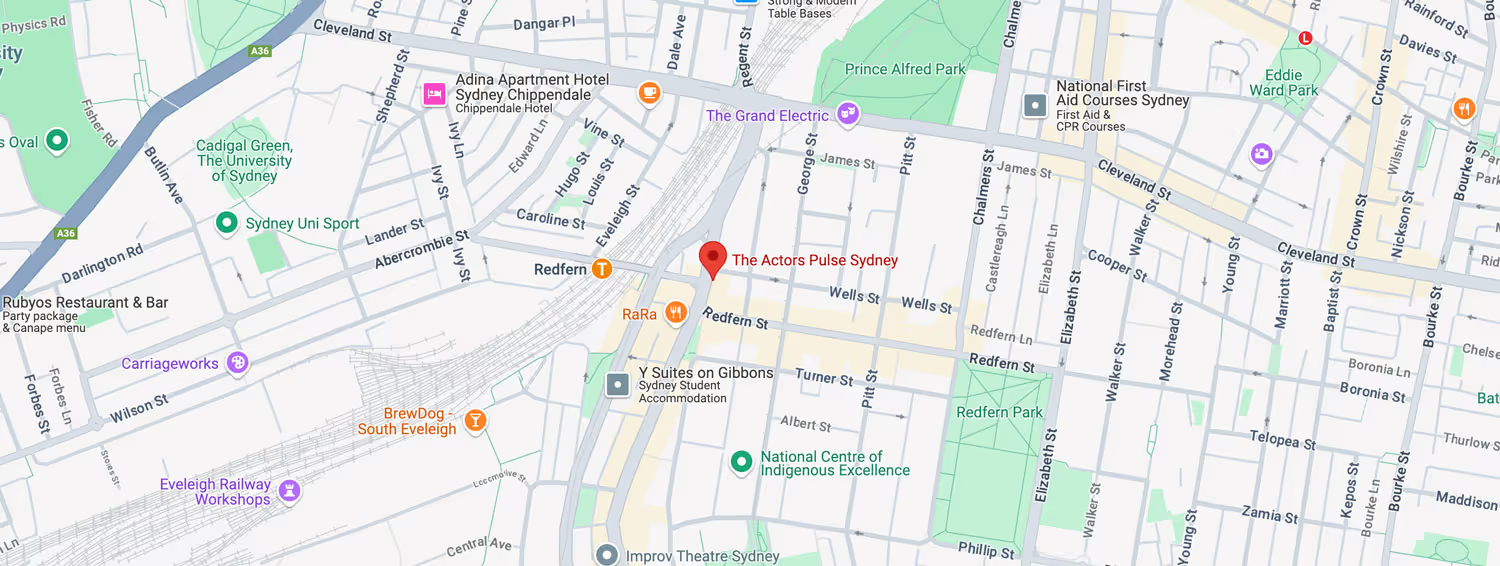
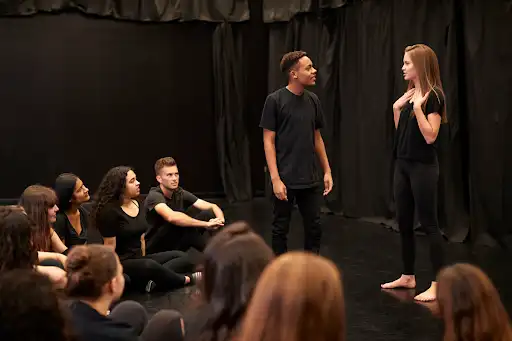
No matter how excited you are or how natural of a performer you may be, attending your first acting class can be pretty intimidating.
After all, you’re preparing to put yourself out there and be incredibly vulnerable with a group of strangers.
Reminding yourself that this is the start of your journey towards becoming an actor can help to overcome some of these nerves. Having an idea of what happens in this first class can also go a long way towards tackling any anxious feelings.
In this guide, we’ll delve into what to expect in your first acting class so you can feel prepared and ready for this exciting next step.
Typically a group acting class will have between 12 to 20 students. However, the size of your class will depend on the school you attend and whether they restrict them to a set number of students.
Class sizes can also vary on each attendance as many students will be actively pursuing acting work and their schedules will shift accordingly.
The duration of your class may also vary based on whether you are completing a part-time or full-time course or casual sessions.
If undertaking a part-time acting course over five to six weeks, classes might be once a week for four hours at a time. Across the board, most acting classes will go for a minimum of three hours.
Why so long? This is to allow ample time for everyone to have a turn at performing and receive feedback.
Before you even step foot into your acting class, it is important to make sure you are properly prepared.
You should wear smart, comfortable, clothing that is not too loose, tight or revealing.
Pants are usually better suited to participating during class rather than dresses or skirts. It is also a good idea to wear shoes which you can easily slip on and off.
As you will be working closely alongside other people, we recommend against wearing strong perfumes or fragrances.
You should bring a water bottle, notebook and pen, and chewing gum should be popped in the bin before class too.
Depending on whether you are beginning a new term of classes or joining mid-way through, the class may begin slightly differently. Each school will also have a different approach to how they run their classes.
Generally, you can expect your first class to look something like the following:
For a whole new class, you may spend 10 to 15 minutes working your way through introductions and being given a brief rundown of what will be covered in each class.
If you are a late entry, you may be asked to introduce yourself to the group and talk a little about yourself.
This can be especially daunting when everyone already knows each other, but as an actor, being the focus of attention is something you’ll need to quickly adjust to!
Every class you attend will involve a mix of games and exercises intended to get everyone relaxed, loosened up and ready to go.
Acting requires a lot of physical, emotional and mental work. Taking the time to warm up and disconnect from everything else is key to delivering a great performance.
While they may seem silly or strange at first, these games and exercises are a valuable teaching tool. They provide an opportunity for your acting coach to see how you interact and adapt in different scenarios.
They also help you learn to improvise and think on your feet – essential skills for an actor!
Warmup exercises may include:
Games may include:
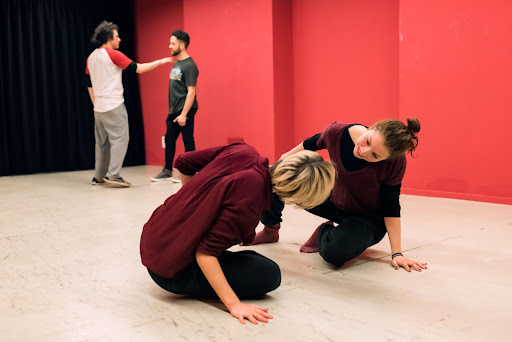
Once your warmups and games are done, you’ll move on to the performance component.
This will mean performing a scene with a partner or doing a monologue on your own – the latter is most likely for your first lesson. This will be done one by one (or pair by pair) and acted out in front of the rest of the class.
If you’re covering film and TV in your class, your performance may also be filmed to be watched and critiqued later. Your teacher may also send this to you to keep so you can rewatch it and study your performance.
Feedback and instruction also known as constructive criticism, is a sometimes uncomfortable but very necessary component of an acting class.
Remember that you are there to learn, so try to accept all feedback graciously and not get offended by it.
Through feedback, you learn how to be a better actor and elevate your performance. Feedback should be centred around your delivery or how you can best employ certain techniques.
Your teacher will deliver this feedback in one of two ways.
They will either:
The former is usually considered to be more beneficial as it allows you to put the advice immediately into practice.
However, this does not always suit everyone’s learning style and can see class times stretch out significantly.
If you learn best by doing, you’ll want to find a teacher who gives succinct explanations and gives more time for the performances themselves.
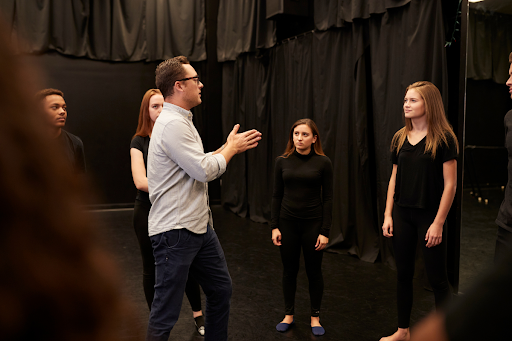
A large part of your class time will be spent watching others perform their scenes or monologues and listening to the feedback they receive.
While you may not have expected to be an audience member for much of your class time, this is equally as important as performing.
So much of how we learn and progress as actors is by observation.
Take note of your classmate’s body language, facial expressions, voice projection, tone and more as well as the feedback they are given.
Doing so will help you build on your performance skills and learn valuable new ones.
Each lesson will look a little different to the last as you work your way through different content.
Your teacher will have planned out a series of different topics to cover in each lesson that builds on the last for a well-rounded approach. As much as possible, try not to miss a class as you will miss out on valuable information that may not be repeated in such depth.
For future lessons, your teacher may communicate with you in advance to provide homework such as scenes to learn or techniques to research.
You should dedicate proper time to memorising any scripts provided so that during the subsequent lesson you can fully engage in the scene.
If you’re struggling to remember your lines, you’ll be more focused on this than the actual acting which means a wasted opportunity.
There is so much more to acting than reciting lines. Your teacher may not introduce scripts for rehearsal or more serious dialogue until a few classes in.
This is because they want to make sure you have a strong foundation in other essential areas.
Learning how to breathe, effectively use body language, speak and project your voice, use props and other skills are equally as important as performing.
Without these skills, your performance and growth as an actor will be stunted.
If you spent time researching the best acting school for your needs (and we hope you did!) then you need to trust that your teacher knows what they’re doing.
They want to give you all the tools and guidance needed to achieve your goal of being an actor. In the end, your success is also theirs.
At The Actors Pulse, we are passionate about delivering acting classes that equip you with the knowledge and skills needed to become a great actor.
As the Southern Hemisphere’s leading school for the Meisner Technique, we have extensive experience teaching actors how to harness their instincts.
This organic, natural approach to acting is highly favoured and generates genuine and captivating performances.
Experience our step-by-step, commonsense approach to acting and embrace your dream of becoming a successful actor. Call The Actors Pulse today at 0414 475 515.

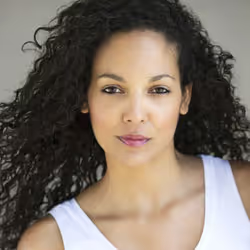
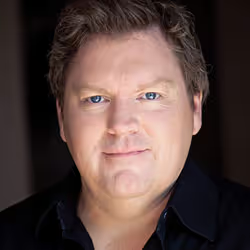


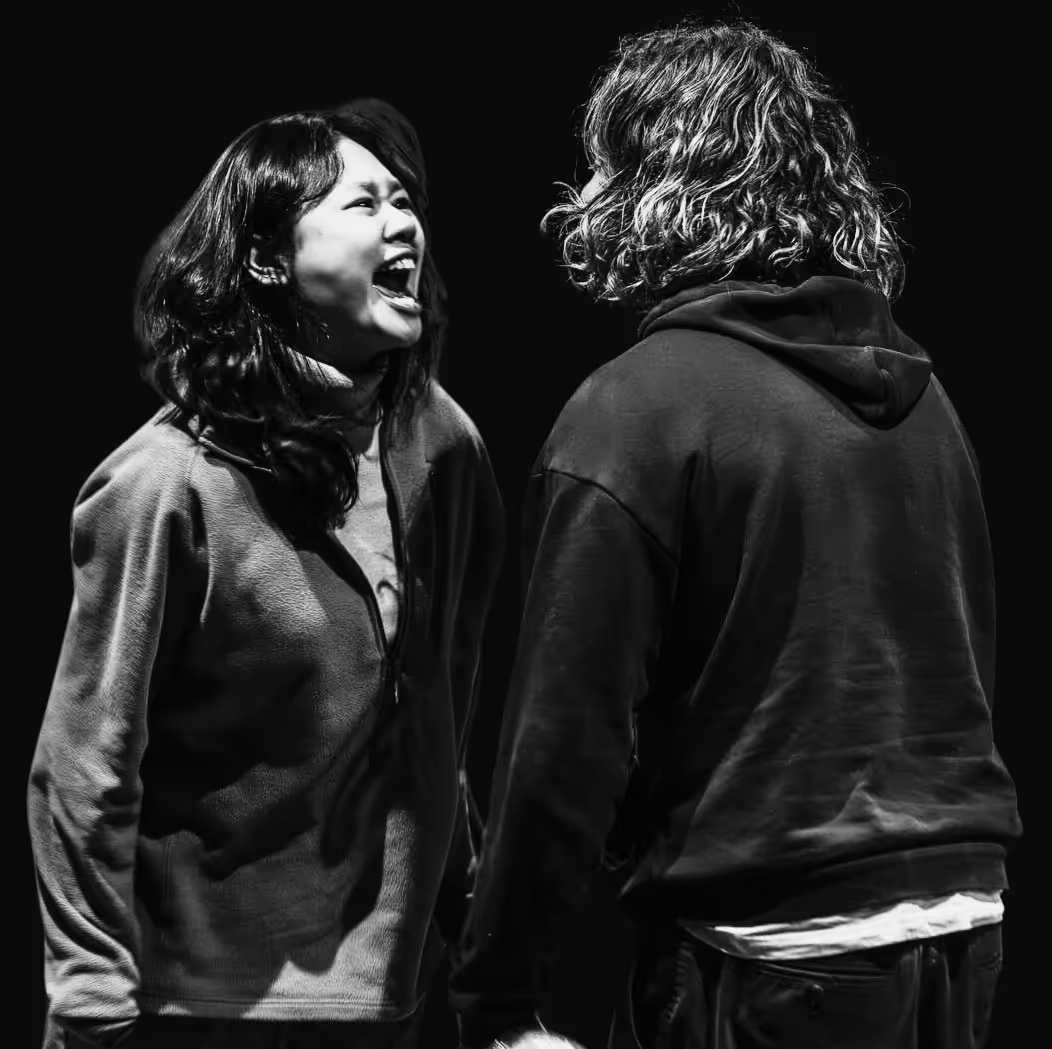



Get in touch with us using the form or details below. We look forward to hearing from you!
